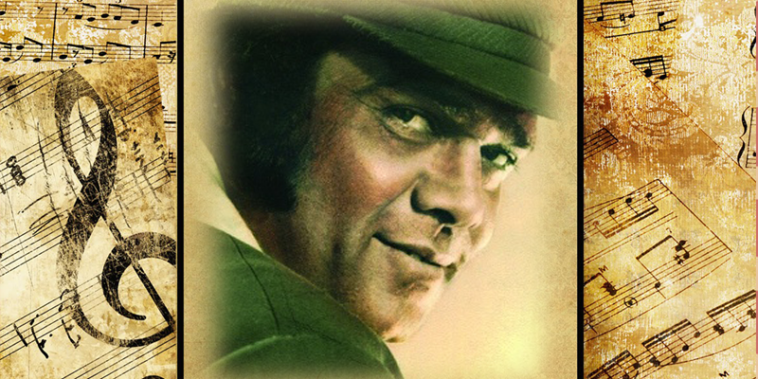And Generations Hence Have Loved His Voice
It’s a shame that so many know his work, but not as many know his name. Yet his work speaks for itself. When Coke Studio’s version of “Ko Ko Ko Reena” was universally maligned, it showed the great respect and love people still had for that classic, and by extension, the golden voice behind it. Today, on Ahmed Rushdi’s 86th birth anniversary, it is evident that his voice still rings loud and clear.
Born in Hyderabad, Deccan in 1934, Ahmed Rushdi made his way to Karachi after the partition and began to excel in Radio and in Film from the beginning. His big break arrived when he sang playback for Allauddin for “Gol Gappay Waala Aaya” in the film Mehtaab in 1962. It won him the Nigar Award for Best Playback. It still plays in certain streets, issuing from vendors’ carts that are selling gol gappay. The fact that a 50 year old song about vendors still echoes in certain streets should tell you all you need to know about the power of his voice.
The Voice of the Common Man
Rushdi was the voice of the common man like no other singer in Pakistan’s history. He began with “Bandar Road Se Kemari” after all; a song about a horse carriage driver who takes you on a trip around Karachi. Rushdi also has to his credit “Tera Mera Saathi Hai Lehrata Samandar” which was about fishermen in the then East Pakistan.
Several other songs like “Allah Bakhshay Waalidein ko”, about a man trying to make a living after the partition, “Tere Haath Ki Lakeerein”, about the worth of a daily labourer, and “Mil Gayi, Mil Gayi Ham Ko Pyaar Ki Yeh Manzil” about a thief turning over a new leaf by getting a job as a labourer, speak for the common people that toil in the hot sun simply to get by.
The Music Director’s Singer
Another of Rushdi’s talents was his grip on musical composition. Composers like Nisar Bazmi and Sohail Rana who were frequent collaborators and favoured Rushdi tremendously talked often about his vocal range and ability. Nisar Bazmi once commented that he was the only singer he had worked with, other than Noor Jahan and Mohammad Rafi, whose voice rose continuously without forming cones.
Similarly, Rushdi’s ability to fit his voice to any actor, any mood, and do justice to nearly any genre was lauded by nearly every music director of his day. Lal Muhammad Iqbal, M. Ashraf, Deebu Bhattacharya, A. Hameed, Rasheed Attre, Hasan Latif, all worked with him to give great hits. Unlike singers that were just known for classical compositions, pop songs, or tragic ballads, he was a master in nearly every genre. So naturally, he was a favourite.
The Voice of Waheed Murad
If there was ever a perfect pair of playback singer and actor, it was Waheed Murad and Ahmed Rushdi. Some even thought that it was Waheed Murad’s own voice in “Tumhay Kaisay Bata Doon” or “Socha Tha Pyaar Na Kareinge”. Two of the four Nigar Awards that Rushdi received were for songs that were picturized on Waheed Murad; “Akele Na Jaana” in 1966, and “Ae Abr e Karam”in 1970.
Rushdi sang for nearly every male actor of his generation like Nadeem, Mohammad Ali, Darpan, Santosh Kumar, Kamal, Habib, Ejaz, etc. He even sang for comedians like Rangeela, Nazar, Lehri, Munawwar Zareef, etc. However, there is no denying he was the voice of the Chocolate Hero Waheed Murad.
When Ahmed Rushdi passed away in 1983, Waheed Murad mourned, “I have lost my voice.” Perhaps it was fate that Waheed sahab himself passed away that same year.
Ahmed Rushdi achieved stardom perhaps greater than any other singer in the history of Pakistan. From when he sang “Bandar Road Se Kemari” on Radio Pakistan in 1954 to the end of his days when old age had caught up with him and he was forced to decline singing offers, his star still shone bright. And guess what? It’s still shining.
Summary



Comments
0 comments